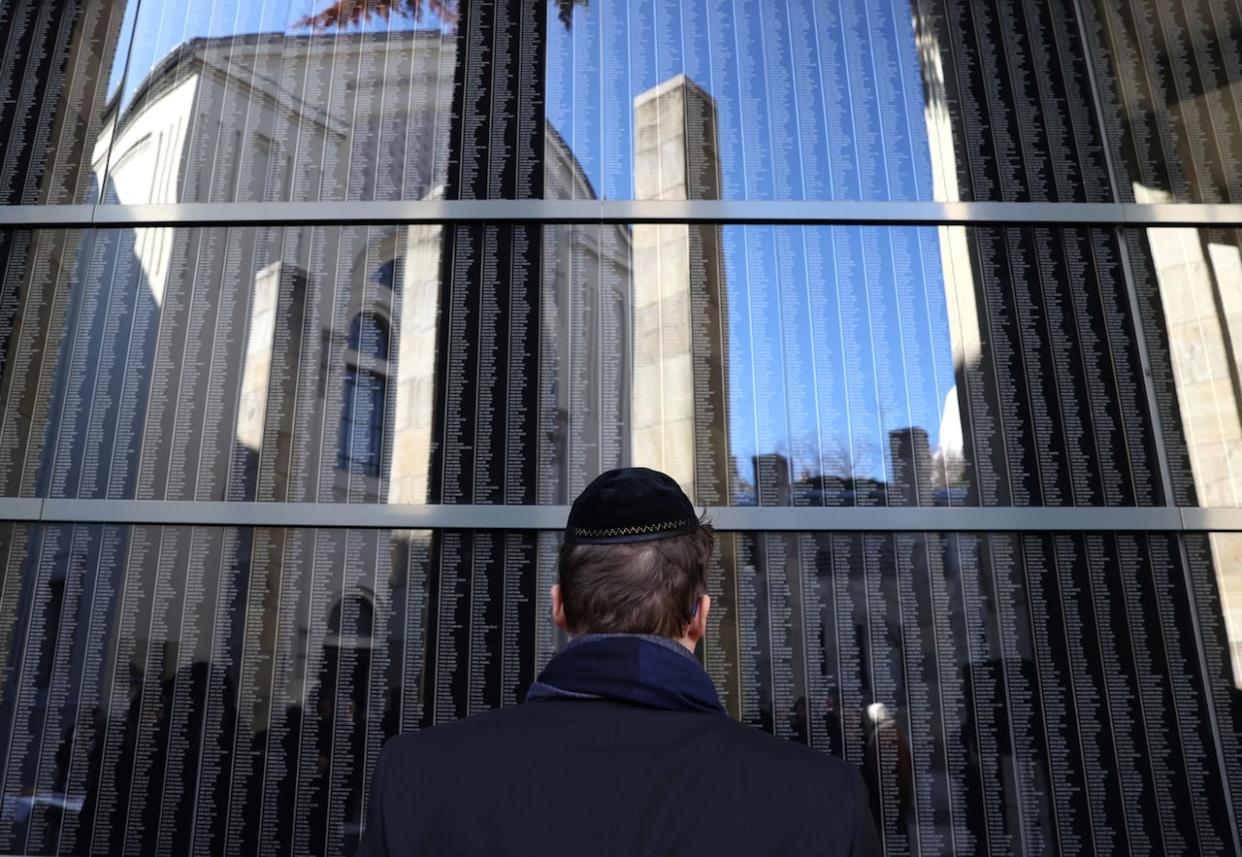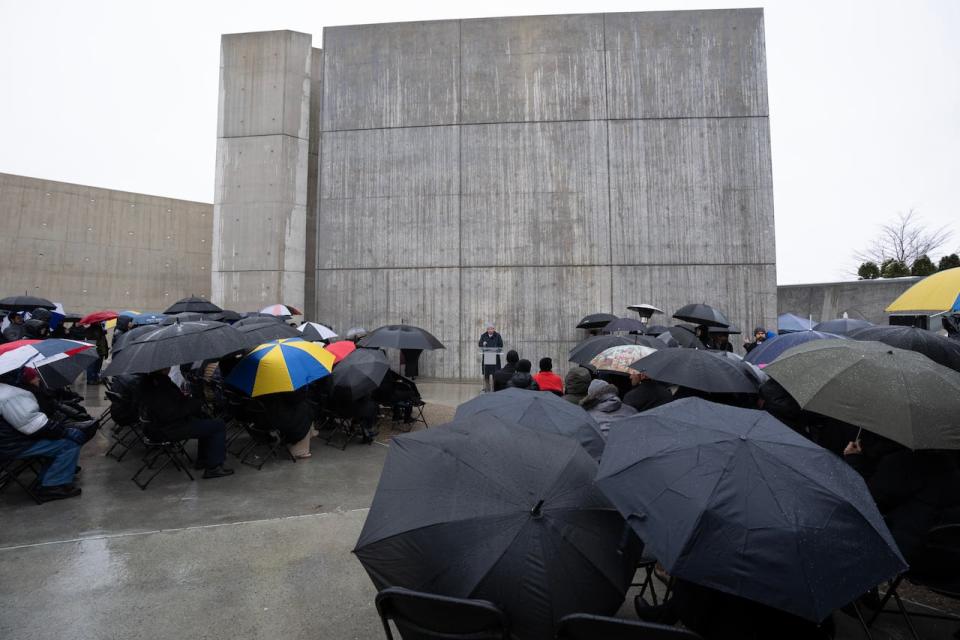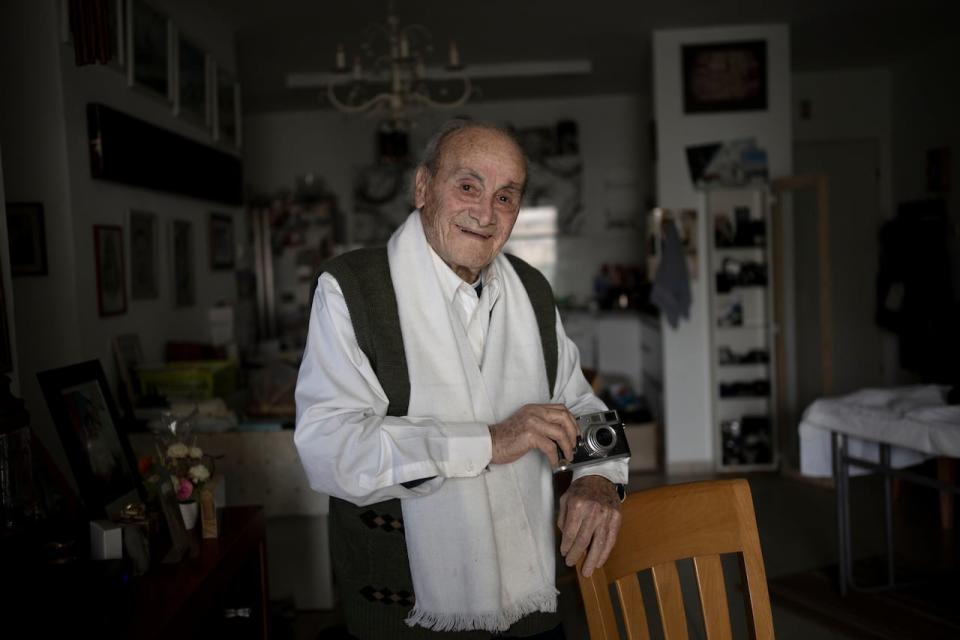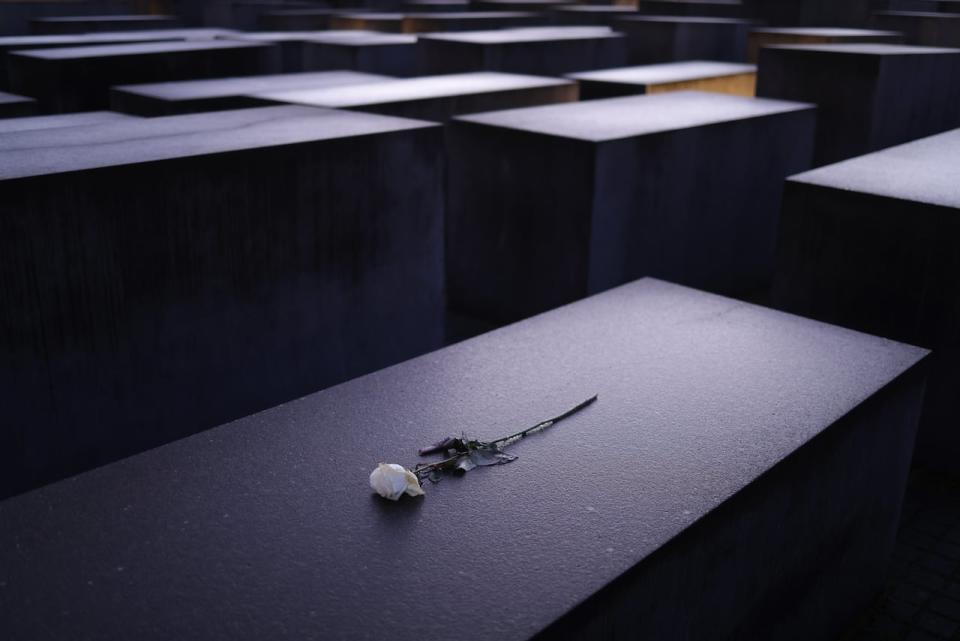On International Holocaust Remembrance Day, leaders urge rejection of antisemitism and hate

An annual time to reflect upon the horrors of the Holocaust arrived Saturday amid sharp global tensions over fighting between Israel and Hamas.
That context was apparent in International Holocaust Remembrance Day messaging from global leaders, who condemned Nazi-era atrocities and urged rejection of hateful ideologies, while pointing to the rising presence of antisemitism in the conflict-riven moment of today.
In Ottawa, Prime Minister Justin Trudeau issued a statement that paid tribute to the millions of Jews slain during the Holocaust and called on Canadians to remember its victims and survivors.

A partial view of people who gathered at Ottawa's National Holocaust Museum on Friday for a service marking the 79th anniversary of the liberation of the Auschwitz-Birkenau concentration camp. (Adrian Wyld/The Canadian Press)
"We reaffirm our pledge to never forget," said Trudeau, whose Friday statement also recognized the many Roma, Sinti, and other groups of people also targeted by the Nazis.
He also underlined the "sharp, disturbing rise in antisemitism" seen in Canada and elsewhere in recent months.
'An alarming rise' in antisemitism
A more pointed message was shared by U.S. President Joe Biden, who said the need to remember the evils of the past was "more pressing than ever" following the Hamas-led attacks on southern Israel last Oct. 7, which ignited the ongoing war in Gaza.
"We have [since] witnessed an alarming rise of despicable antisemitism at home and abroad that has surfaced painful scars from millennia of hate and genocide of Jewish people," Biden said in a statement issued Friday. "It is unacceptable."
Those same attacks in Israel last October have left the Jewish community in Australia "bearing a pain you should never have had to bear again," said Australian Prime Minister Anthony Albanese in a video message.
Albanese said the remembrance of the Holocaust "must be a conscious act" as he called on fellow Australians to "always denounce and reject antisemitism."
British Prime Minister Rishi Sunak said "we have a duty to remember the horrific crimes of the Holocaust." He pointed his social media followers to the learn the story of Lily Ebert, a 100-year-old survivor.
Past and present
For Gad Partok, a 93-year-old resident of Ashkelon, Israel, the events of the distant past, in some ways, did not feel so very far removed from the ongoing aftermath of the Oct. 7 attacks.

Gad Partok, 93, a Tunisian-born Holocaust survivor, poses for a portrait in his home in Ashkelon, Israel, on Friday. (Maya Alleruzzo/The Associated Press)
As a 10-year-old, Partok saw Nazis storm a street where he lived in the coastal Tunisian town of Nabeul. He saw them going door to door, hauling out his neighbours, shooting them and burning down their homes.
Like so many Jews who moved to Israel after the war, Partok believed Israel would be a place where he would be free from persecution.
But when militants crossed into southern Israel last October, the scenes of the violence that took place brought Partok's thoughts back to things he'd seen long ago.
"I thought — what, is this the same period of those Nazis? It can't be," said Partok, who was clenching his fists while speaking to The Associated Press.
The plight of Tunisia's small Jewish community is a lesser-known chapter of the Holocaust.
Over six months of occupation, the Nazis sent nearly 5,000 Tunisian Jews to labour camps, where dozens died from labour, disease and Allied bombing campaigns, according to Israel's Yad Vashem museum. Allied forces liberated Tunisia in 1943, but it was too late to save many of Partok's neighbours.
Partok said his family was only able to escape because his father, a fabric dealer who spoke Arabic, disguised the family's Jewish identity. The family left Tunisia and moved to what would become Israel in 1947, a year before the country gained independence.
Every generation 'must learn the truth'
In Germany, where people put down flowers and lit candles at memorials for the victims of the Nazi terror, Chancellor Olaf Scholz said that his country would continue to carry the responsibility for this "crime against humanity."

A white rose is seen lying Friday at the Holocaust Memorial in Berlin. Saturday marked the annual International Holocaust Remembrance Day. (Sean Gallup/Getty Images)
He called on all citizens to defend Germany's democracy and fight antisemitism, as the country marked the anniversary of the liberation of Auschwitz.
"'Never again' is every day," Scholz said in his weekly video podcast. "Jan. 27 calls out to us: Stay visible! Stay audible! Against antisemitism, against racism, against misanthropy — and for our democracy."
Ukrainian President Volodymyr Zelenskyy, whose country is fighting to repel Russia's full-scale invasion, posted an image of a Jewish menorah on X, formerly Twitter, to mark the day of remembrance.
"Every new generation must learn the truth about the Holocaust. Human life must remain the highest value for all nations in the world," said Zelenskyy, who is Jewish and who lost ancestors in the Holocaust.
"Eternal memory to all Holocaust victims!" Zelenskyy tweeted.


